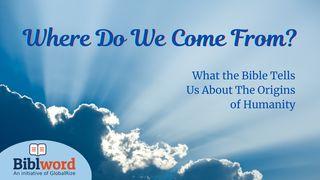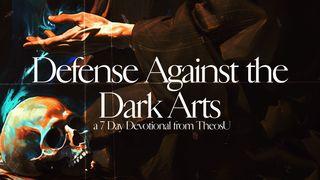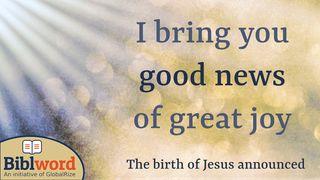Justice ParablesSample

The Sower
Pastor J. Dykeman Brown
Triumphant Faith International Worship Center
Jesus the master teacher uses the parabolic method to explain to his hearers and us the life principles of the Kingdom. A parable is simply an earthly illustration with a heavenly meaning. In this illustration, Jesus uses the techniques familiar to Palestinian farmers of his day. Jesus doesn’t go over the latest discoveries in agriculture, but he does go over the results of sowing seeds and the kinds of responses one can expect from such an effort. We have also with this parable the beauty of Jesus clearly interpreting for us its key components. Jesus tells us “the sower” is the Son of Man, “the field” is the world and “the seed” is the Word of God and/or the Children of the Kingdom (Luke 8:11; Matthew 13:37–38). With this in mind, we approach these Kingdom insights with great expectation to understand what God is graciously communicating to his church.
I’m so impressed with the love of God in this parable. God sends his Word out to the entire world to receive the gospel, without exception. As Jesus said on one occasion, the sun shines and the rain falls on the just and the unjust. No one is exempt from God graciously reaching out to them in love. The seed is to be sown, proclaimed, preached, and taught in every venue and sphere of life. Through the seed, God delivers his thoughts and ways to a world whose thoughts and ways are contrary to his. No one is out of God’s reach.
Consequently, the Word is to be sown in families, societies, businesses, governments, armed forces, media outlets, entertainment arenas, through the arts, and wherever people can be found. This seed should impact the constructs and systems of justice or injustice, righteousness or unrighteousness, equity or inequality, wealth and poverty, education and ignorance and any other sphere humanity has been given authority to rule.
The Word of God sown will have various effects on this world because it is designed to penetrate people’s hearts to produce Kingdom fruit everywhere it is preached. However, Jesus gives us the reality of the various ways people’s hearts might respond to his gracious gospel. Some of the seeds sown fall to the wayside. Jesus explains that these are the people who hear the Word, yet they have no real understanding of it and the devil, taking advantage of their ignorance, snatches the Word away, removing their ability to grasp its salvation.
Some of the seeds fall upon rocky ground. These are those who get a joyous, emotional lift upon hearing the good news. They seem to respond eagerly and properly, but because they choose not to stabilize and root themselves in the foundational teaching of God’s Word, they fall away when temptation and trouble surface in their lives.
Some seeds fell among thorns. These are those who receive God’s Word but are distracted by things that supersede prioritizing God’s heart and bring only immediate gratification. Consequently, those other preoccupations choke and strangle their ability to be fruitful in the Kingdom.
Some of the seeds sown fell upon good ground! These are those who readily hear God’s Word, understand it, apply it to their lives, and benefit from it. They become fruitful in this life, in varying degrees, and help to establish the Kingdom of heaven within the earthly realm.
Wherever the children of the Kingdom find themselves, the fruit of love, salvation, righteousness, justice, and equity should impact their circles of influence. Why? Because the children of God, scattered throughout this field—the world—are the body of Christ. And, as the body of Christ, reflecting the Kingdom of God, we should act like salt and light to influence and impact every dimension of human life.
Questions
- Many people seem to think the Word of God should only be shared in the confines of the church. Do you share God’s Word beyond the walls of the church?
- If you got an opportunity to share God’s love, is there anyone with whom you would feel uncomfortable sharing? Why?
- Since people will respond differently to God’s Word, what is your hope and expectation as you speak the truth in love?
- Considering the constructs and systems of institutionalized racism, injustice, economic disenfranchisement, educational inequities, real estate redlining, criminal justice, poverty, and xenophobia, what roles do you think we have as the children of God?
- If you had to measure the fruit we should be producing individually and collectively, as children of the Kingdom, would you say we are sufficiently producing Kingdom results throughout the world?
Scripture
About this Plan

Being part of the Kingdom of God should shape our personal character—and our public roles. But how? “Jesus’s Parables on Justice” features the reflections of 30 Philadelphia pastors on 11 parables that illuminate the Kingdom. The pastors help us ask good questions about these surprising stories to guide us in putting Jesus’s words into practice. Read Jesus’s words. Consider the questions. See what God says to you.
More
Related plans

Hope for the Holidays

Led by the Spirit: Journey Through the Book of Acts Part 1

Where Do We Come From?

The Comeback Part 1

Defense Against the Dark Arts

I Bring You Good News of Great Joy

Thriving Through the Holidays: 5 Days of Hope for the Military Wife This Christmas

Hope in the Midst of Chaos: Devotions for Teen Mothers

Advent: Join the Triumph
